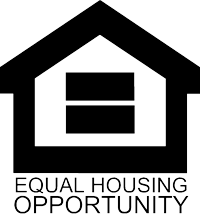If you’re a student at the University of Wisconsin-Eau Claire (UWEC) and renting for the first time, you might hear about something called "utility escrow." While escrow may sound complex, it’s a simple way of managing money set aside for specific bills or services, like utilities. Knowing what utility escrow is and how it works can help you understand your rental agreement better, manage your budget, and avoid surprises. This guide will break down everything you need to know about utility escrow and how it can benefit you as a first-time renter.
What is Utility Escrow?
In the simplest terms, utility escrow is a way for landlords to collect money from renters and hold it to pay for utilities like water, trash, sewer, electricity, or lawn care. The landlord collects a certain amount each month in addition to your rent, and this amount goes into an escrow account dedicated specifically to covering these utility bills.
Here’s a quick way to think about escrow: imagine a savings jar that’s only used for specific expenses. The landlord puts your utility payments in this "jar," so the money is there when it’s time to pay the utility bills. This helps make sure utilities are paid on time, avoids unexpected costs, and keeps things fair and organized.
How Does Utility Escrow Work?
For first-time renters, here’s a simple step-by-step look at how utility escrow works:
Monthly Contributions: Each month, along with your rent, you’ll pay a set amount that goes into the utility escrow account. This extra amount is for utilities only and not for any other purpose.
Escrow Account: The landlord keeps these payments in a separate escrow account. This account is managed just for utility payments like water, sewer, trash, and lawn care, and the funds aren’t used for anything else.
Paying the Bills: When it’s time to pay for utilities, the landlord takes the money from the escrow account to cover the bills. This means you don’t have to worry about handling multiple bills on your own—the landlord uses the escrow funds to keep everything paid.
Review and Adjustments: At the end of the lease or every few months, the landlord may review the utility escrow payments to see if the amount needs adjustment. Sometimes, utility rates change or the building’s usage changes, and this can affect how much is needed for utilities.
Why Do Landlords Use Utility Escrow?
Utility escrow makes managing utilities simpler and more organized, both for the landlord and the tenant. Here are some reasons landlords might use escrow for utilities:
Consistency: Escrow provides a predictable, set amount each month. This avoids situations where utility costs vary widely from month to month, making it easier for both parties to budget.
Transparency: An escrow account can show how much money goes in and out for utilities, helping ensure that the funds are only used for their intended purpose. This adds a level of trust between the landlord and renter.
Group Utility Management: In buildings with multiple renters, it’s easier for the landlord to collect one amount from each unit and pay a single utility bill rather than managing separate bills for each tenant.
Protection Against Non-Payment: Escrow helps make sure there’s always money available to cover utility costs, avoiding any service disruptions that might happen if someone forgets to pay or can’t afford a high bill.
What Types of Utilities Are Typically Covered?
In many apartments, utility escrow may cover several key services, including:
Water and Sewer: Water and sewer services are often included in escrow. These cover the water you use for daily activities (like drinking and showering) and the sewer services for wastewater. These utilities are essential, and escrow helps make sure they’re consistently paid.
Trash Collection: Trash pickup is another common utility that’s included in escrow. Instead of dealing with separate bills for garbage pickup, your landlord will collect a portion of your escrow payments and use it to pay the trash company.
Lawn Care and Common Area Maintenance: In some apartment buildings, utility escrow also covers outdoor services like lawn care, snow removal, or common area maintenance. These services keep the property in good shape and make it more enjoyable for all residents.
Electricity (sometimes): Depending on the rental agreement, electricity might be included in escrow or it might be a separate bill. It’s always a good idea to check your lease to know what’s included.
How Utility Escrow Benefits First-Time Renters
If you’re a first-time renter, here are some reasons utility escrow can make renting easier and more convenient:
Simple Budgeting: With utility escrow, you pay one set amount each month that covers rent and utilities. This predictability can make it easier to budget, especially on a student income. You won’t have to worry about sudden increases in utility bills because the landlord takes care of that with the escrow account.
Peace of Mind: When utilities are handled through escrow, you don’t have to worry about remembering to pay multiple bills or dealing with utility companies. The landlord manages all the payments, and you know your utilities are covered.
Fair and Transparent: Utility escrow is set up to be fair. Your landlord collects the exact amount needed for utilities, and any leftover funds may be adjusted or returned, depending on the lease terms. This can help you avoid feeling overcharged or surprised by additional fees.
Focus on School and Activities: For UWEC students, juggling bills can be stressful. Utility escrow simplifies the process, letting you focus on school, work, and social activities rather than worrying about utility payments.
Reliable Services: Because escrow makes sure utility money is set aside, there’s a lower risk of service interruptions. This is especially important for essentials like water and trash, where missing a payment could create issues for all tenants.

What if the Utility Costs Change?
Sometimes, utility rates go up or down, and this can impact how much you need to pay into escrow. Here’s what might happen if costs change:
Review of Escrow Payments: The landlord may review utility escrow payments at the end of the year or when the lease renews. If there’s a big change in utility rates, the landlord might adjust the escrow amount.
Adjustments in Your Lease: Some leases include a clause that allows for adjustments to escrow payments if utility costs change. This means that if rates go up, you might have to pay a little more each month. Be sure to ask your landlord if this is a possibility.
Disclaimer
Hey there! Thanks for reading our stuff. We want you to know a few important things:
We're General Property Management LLC, right here in good old Eau Claire, WI. You can make an appointment to visit us. Our office is located at 703 5th Avenue #1, Eau Claire, WI 54703 or send written correspondence to General Property Management, LLC, P.O. Box 283, Eau Claire, WI 54702.
If you need to reach us, our email is contact@ec4rent.com and our phone number is 715-832-1200.
We try our best to give you good information, but we're not lawyers. If you have a serious legal problem, it's best to talk to a real attorney.
If you spot any mistakes in what we've written, please let us know! We'd love to fix it or take it down if needed.
We always welcome your comments and thoughts. Your feedback helps us do better!
Remember, when we all do our little part, the world is a better place.




